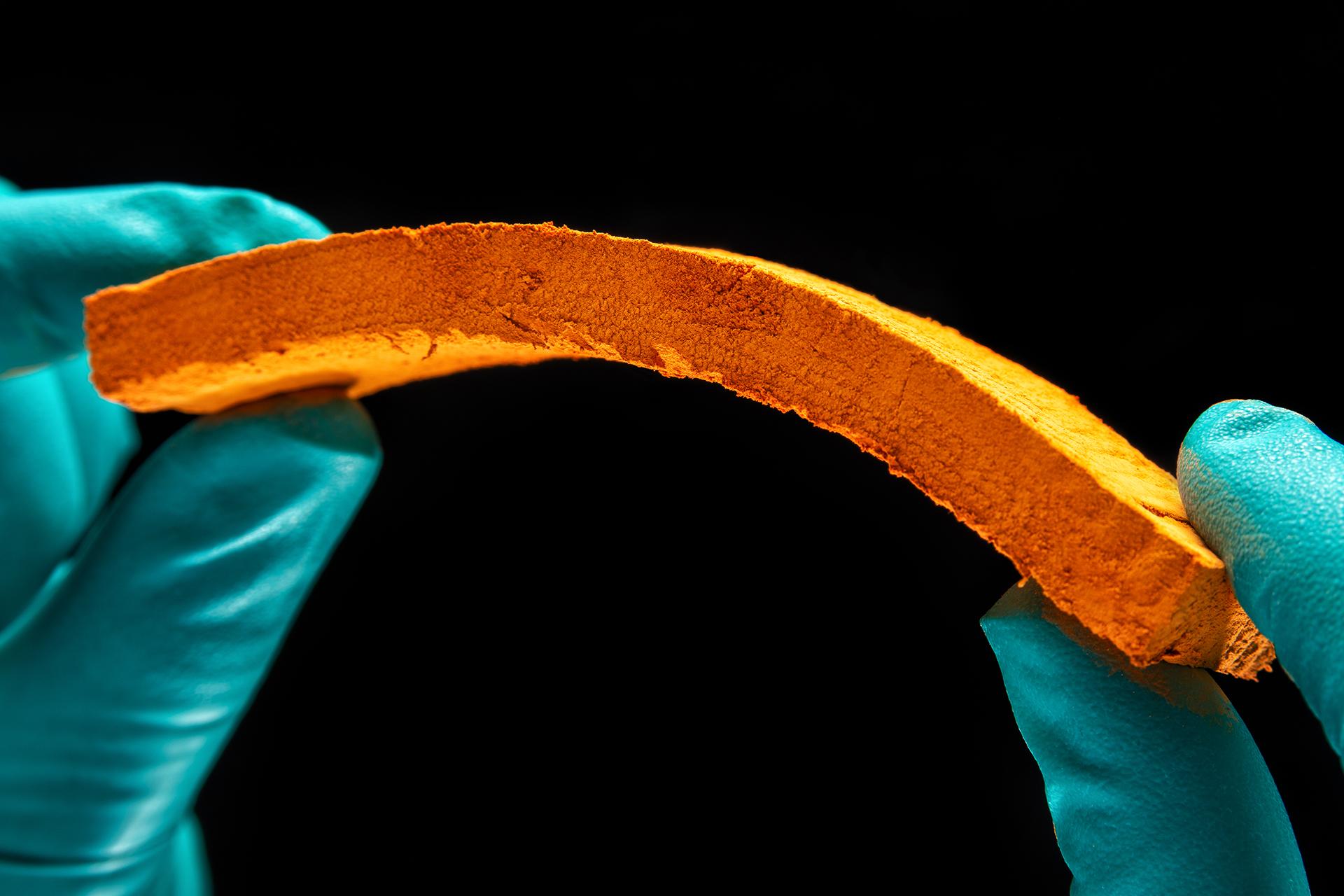BAU 2025: Fraunhofer WKI develops sustainable aerogel materials made from waste wood
At BAU 2025 in Munich, researchers from the Fraunhofer WKI will be presenting a project in which innovative aerogels are being developed from waste wood. These sustainable materials are being utilized by the researchers to develop, amongst other things, pollutant-adsorbing air filters and recyclable insulation materials.

Aerogels are highly porous, light-as-a-feather materials with exceptional properties. This makes them ideal candidates for lightweight construction and for filter materials. They are characterized by extremely low thermal conductivity and a high adsorption capacity for volatile organic compounds.
The project partner DLR (German Aerospace Center) developed the procedures for producing aerogels from waste wood. The processing of the waste wood and the extraction of the required raw materials – such as lignin and cellulose – necessary for these procedures was conducted at the Fraunhofer WKI. With the help of industrial partners, processes are currently being developed in order to incorporate these aerogels into insulation materials and filters and, consequently, to improve their insulating and adsorption effect. These products can be utilized in buildings and vehicles and also offer transfer possibilities for applications in exhaust-gas purification. Furthermore, in order to close the material cycle, processes are to be developed that will enable the raw materials required for aerogel production to be recovered from the filters and insulation materials. “With our research project, we are providing a contribution towards resource conservation and climate protection,” said Dr. Jan Gunschera, Project Manager at the Fraunhofer WKI.
The entire value chain, from raw-material extraction through to material recycling at the end of its useful life, is mapped in the project. The treatment process to be developed for the insulation materials and filters at the end of their service life enables high-quality recycling of waste and production residues.
Aerogels are not only environmentally friendly, but can also improve the air quality in indoor areas, which is of great importance in view of the increasing amount of time spent in closed rooms.
The project is in accordance with the German government’s climate targets and the Charta für Holz 2.0 (Charter for Wood 2.0).
Last modified:
 Fraunhofer Institute for Wood Research
Fraunhofer Institute for Wood Research 

